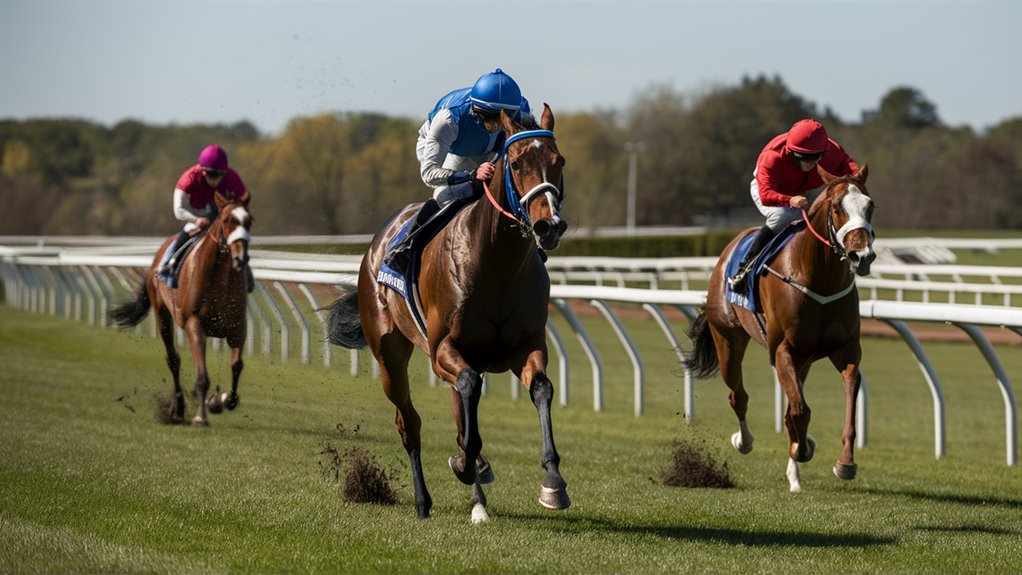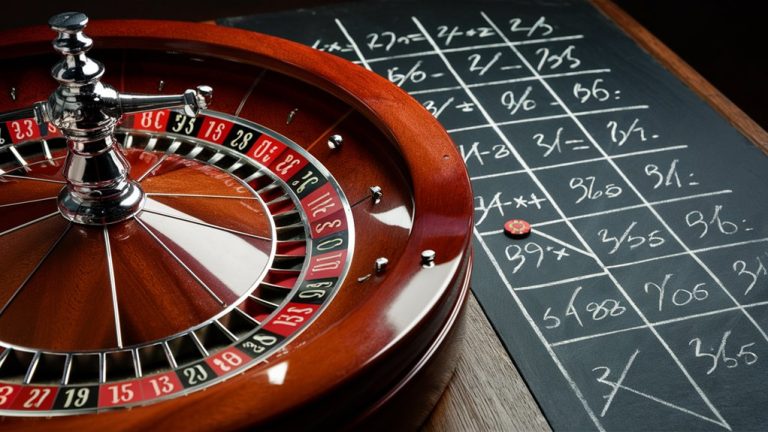How to Choose Winning Horses in Races

Key Metrics for Horse Race Study
Winning at horse races means studying five key show signs:
1. Past Race Study
Check the horse’s past places and speed scores from the last 3-5 races to see stable show trends. Look for steady gain in race times and places in races.
2. Track State Check
See ground states and weather effects that often change race times by 1-2 seconds. Watch track lean and how some horses do on each grounds (dirt, grass, fake).
3. Class Level Check
Watch falling favorites as they win 68% of the time. Review class moves and spot horses racing at their best levels using past results. 온카스터디 공식파트너 확인
4. Ties Study
Look for top team-ups of jockey and trainer who keep up more than 20% win rates. Look into their wins at certain tracks and type of races.
5. Family Lines Study
Look at Dosage Index scores below 4.00, which tell of top breeding for speed and staying power. Think of inborn talent and family race wins.
Smart Betting Ways
Set tight cash rules by using only 2-3% of all cash. Track Money Back Percents (ROI) often to know how well you bet and tweak plans as you go.
Knowing these linked show signs helps predict race results and pick winners often.
Deep Look at Horse Racing Past Race Study
Key Show Signs to Note
Looking at past race stats is key for winning horse race bets.
Look at info from the last 3-5 races, noting key stuff like end spots, race lengths, track states, and class levels.
Speed scores help see where horses stand when you compare them to others, spotting ones that always do well.
Pattern and Metric Spotting
Spotting show trends needs you to look at many things:
- Gains in end times
- How well they did at past lengths
- How they run on each ground
- How far back they were from the winner
- Speed through parts of the race
- Speed at race end
Form Just Now
Looking at latest form within 60 days is key for spot-on guesses. Things to see include:
- Weight changes
- Jockey picks
- Gear changes
- Class level moves
- Track lean stats
- Run style fit
Pulling all these detailed show signs with the current race set lets you make full chance profiles for each horse.
This full method to study show lifts guess right by using numbers and careful study ways.
How Track States and Weather Change Horse Racing
Ground Study Need-to-Know
Track states and weather shifts are big in how races turn out.
Studying track states before bets is key, as horses show how well they do on dry, muddy, and messy grounds.
Stats show that some horses do 15-20% better on wet tracks than on dry.
Weather Study and Show Metrics
Weather hints and track up-keep news are must-knows before the race.
Rain can change track states fast, and wind speed messes with run times by 2-3 lengths per mile.
Heat changes are big too – stats show horses run 1-2 seconds slower per mile in high heat over 90 degrees.
Bias on Track and Ground Fit
Track lean looks needs deep study to bet smart.
Inside rail spots often slow in wet states, while outer paths often give better ground.
Off-track data in past race info should get lots of looks – horses with 75% money-making ends on muddy grounds need more look when rain is likely. Ground-weather link study shows 23% better pick right in past years.
Know Horse Racing Class Levels: A Smart Guide
Class Moves Study for Better Betting
Racing class levels are key in seeing a horse’s race chances, with data showing that 68% of favorites falling in class win their next race. This full guide looks at class study to lift betting hit.
Class History Looks
Latest class moves study gives key betting hints when seeing competitive moves.
A sharp focus on class drops – mainly moves from allowance to claiming races – shows more win chances.
Stats show that horses dropping two or more class levels win about 42% of starts.
Seeing Class Hold
Prize value study through a horse’s three latest starts gives key show signs.
Steady prize ranges within 15% often say class show holds. Big prize changes over 30% need careful looks at class fit ability.
In big race tries, horses keeping 65%+ top-three ends show top class hold and race tops.
Key Class Level Signs:
- Prize trends
- Class move trends
- Show hold
- Big race show
- Win percentages by class
Know Jockey and Trainer Stats in Horse Racing

Key Show Metrics
Win percentages and win counts are key in guessing horse racing wins. Teams doing 20%+ win rates need more looks from betters.
A trainer’s Money Back (ROI) over 90 days, mainly in certain race types and lengths, shows key trends about current form and special skill.
Seeing Jockey Show
In-money percentage (ITM%) is a better look than win rate alone when checking jockey hold. Deep study includes:
- Track-based show
- Ground skill
- Length likes
Top doers keep 15%+ win rates and 50%+ ITM% over 200+ rides, showing long-term tops.
Trainer-Jockey Teams
Winning trainer-jockey pairs need full looks. Key signs include:
- 25%+ win rate over 20-30 team rides
- Show trends over certain race types
- Win counts in claiming levels
- Win rates in first tries
- Big race stats
Notably, trainers getting 30%+ wins with first-runners by favored jockeys show big betting chances and solid show trends.
Know Speed Scores and Show Ratings in Horse Racing
Speed Study Need-to-Know
Speed scores give standard looks that are key for seeing horse show across different tracks, grounds, and race sets.
Beyer Speed Scores and Timeform rates stand as set marks, adding track changes and set show info to give steady study hints.
Pro betters focus on finding steady trends more than just one-time top shows when using these key numbers.
Pattern Spotting and Show Hold
Horses keeping speed scores with a small 3-5 point range show valuable hold in their racing form.
For example, a run of scores like 89-92-90 often means more trust than shaky ones like 82-95-84.
Track-based rates add to the study by marking great show at certain lengths or on certain grounds.
Gains and Class Checks
Show gains are key when checking younger horses. A three-year-old with steady score gains like 82-85-88 shows good growth chances.
Matching these numbers with class levels gives needed context – steady 85-place show in allowance races often means more than rare 90-rate tries in claiming sets.
Key Show Signs
- Speed score hold
- Track change fits
- Ground-based rates
- Class level links
- Steady gains
Know Horse Family Tree and Lines: A Full Guide
Seeing Gene Lines for Race Guesses
Family line checks need you to look at both sire and dam lines through at least three generations.
Race win signs, mainly in Grade 1 big races, give key looks into inborn show chances. This deep check helps guess a horse’s likely skills on the track.
Length Fit and Gene Pull
Sprint vs. stay traits show strong gene trends.
Kids of top sprinter sires often do well in races of 5-7 furlongs, while stay-based lines show top show in races longer than 8 furlongs.
The mom’s gene part, making up about 35% of show chance, makes mom’s sire stats key in breeding looks.
Deep Line Check Metrics
Key Show Signs
- Dosage Index (DI) scores under 4.00 show strong long race chance
- Chef-de-race trends give key speed/stay mix
- Parent line mix rates
- Nick patterns showing 15% above-average show in specific sire-dam mixes
Kid show numbers tracked through set info spots include win rates, cash per start, and length likes, offering numbers for breeding choices.
Must-Know Money Ways for Long Win
Money Rules Need-to-Know
Smart cash rules are key for betting that lasts.
Use a safe plan by keeping bets to 2-3% of all cash to manage risk well. This careful way keeps you safe during low times and keeps cash for long-term growth.
Number-Driven Show Checks
Full record-keeping is the base of pro betting work.
Watch key numbers including win/loss scores, money back percents (ROI), and bet type show. Deep spreadsheet checks show that special bets like exactas and trifectas often give better number returns than straight bets, though with higher change levels.
Risk Control Steps
Use firm stop-loss steps with daily loss caps at 15% of cash.
Set clear profit aims and stay strict by ending sessions when hitting a 20% gain. Count for track take (15-25%) and breakage when figuring out profit levels. The Impact of Advertising on Gambling Behavior
Getting steady wins needs keeping a 20% win rate at average odds of 4-1 to beat house edges.
Smart Number Study
Show bettering leans on system-based study of betting trends and results.
Focus on spotting bets with good expected value through deep number checks. Regular reviews of betting info help tweak plans and lift return chances while keeping risk rules tight.






